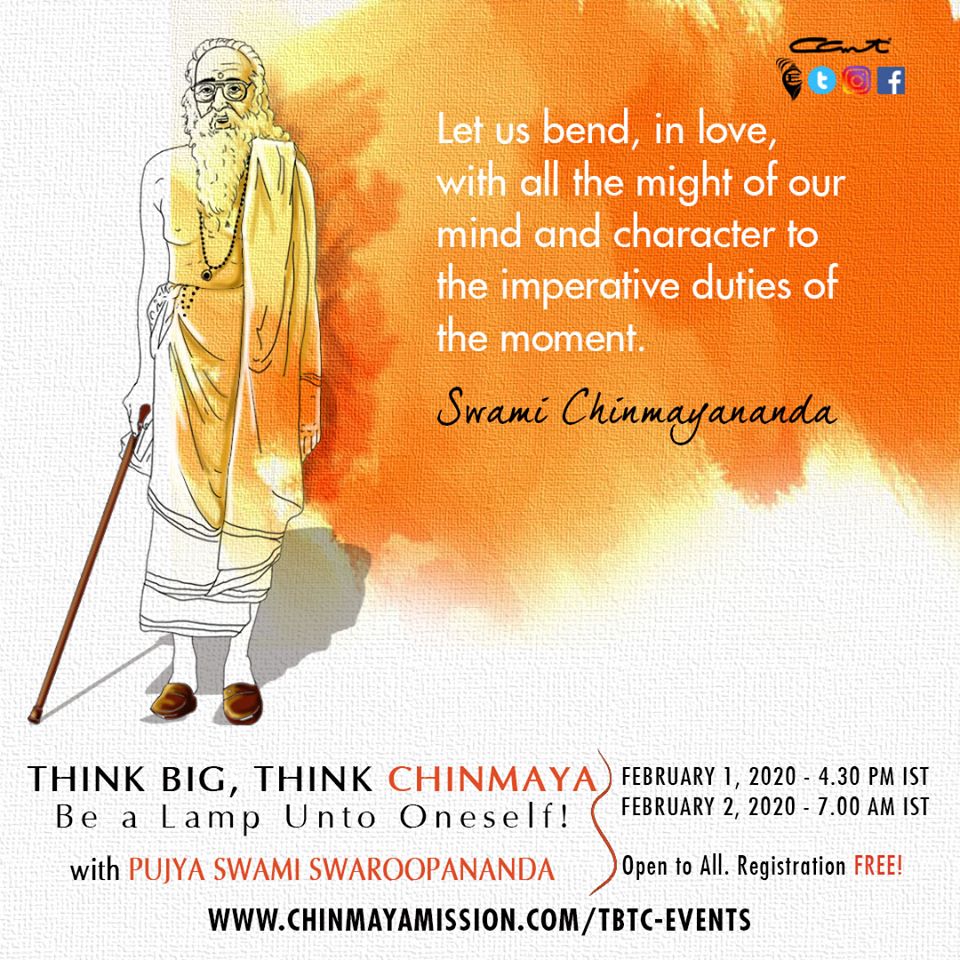The Philosophy of the Bhagavadgita - 3.5. Swami Krishnananda
=======================================================================

-----------------------------------------------------------------------------------------------------------------------
26/01/2020.
Chapter 3: The Spirit of True Renunciation -5.
----------------------------------------------------------------------------------------------------------------------
1.
We will be a little bit restless in the beginning stages. We will be unhappy for reasons we cannot easily know. We will like to get up and run away into the thick of human relations once again, because man is a social animal basically. And to ignore this aspect of the human individual would be not to properly comprehend the psychology of the human being. The attractions and repulsions, the likes and dislikes in relation to personalities, are inborn in us.
We are born into this circumstance. We have something to say about the people around us. For or against, we have some opinion about people, and we always pass a judgement on things in our own selves. A judgement in the form of a logical conclusion that we draw in connection with our understanding in relation to humanity around us becomes the propelling force for our conduct and behaviour in relation to people.
------------------------------------------------------------------------------------------------------------------------
2.
Our attitude towards people is the result of our understanding of people. We have an opinion in such-and-such a manner and, therefore, we have to deal with this situation in such-and-such a manner. This so-called dealing in respect of people outside is our conduct which we express in behaviour outwardly, an expression of our internal attitude or feeling psychologically. Mostly, we are tied up by ropes of likes and dislikes which pull us in two different directions, and we rarely bestow thought on the interesting feature behind our likes and dislikes, namely, that a like implies a dislike, and a dislike implies a like.
They are not actually two different activities of the mind. It is one outlook, one attitude, which puts on the colour or feature of a double attitude. The like which the mind entertains in respect of a particular thing or a group of things implies the exclusion of factors which do not contribute to the makeup of that atmosphere in which this thing or this group of things exists.
The inclusiveness in respect of a particular situation implies exclusiveness in respect of other situations. So, as the obverse and reverse of a coin, like and dislike go together, one signifying the other, one being impossible without the other. This is, again, an internal warfare that is taking place in us, a perpetual conflict between the circumstances within us pulling us in the direction of likes and dislikes.
------------------------------------------------------------------------------------------------------------------------
To be continued ....

========================================================================

-----------------------------------------------------------------------------------------------------------------------
26/01/2020.
Chapter 3: The Spirit of True Renunciation -5.
----------------------------------------------------------------------------------------------------------------------
1.
We will be a little bit restless in the beginning stages. We will be unhappy for reasons we cannot easily know. We will like to get up and run away into the thick of human relations once again, because man is a social animal basically. And to ignore this aspect of the human individual would be not to properly comprehend the psychology of the human being. The attractions and repulsions, the likes and dislikes in relation to personalities, are inborn in us.
We are born into this circumstance. We have something to say about the people around us. For or against, we have some opinion about people, and we always pass a judgement on things in our own selves. A judgement in the form of a logical conclusion that we draw in connection with our understanding in relation to humanity around us becomes the propelling force for our conduct and behaviour in relation to people.
------------------------------------------------------------------------------------------------------------------------
2.
Our attitude towards people is the result of our understanding of people. We have an opinion in such-and-such a manner and, therefore, we have to deal with this situation in such-and-such a manner. This so-called dealing in respect of people outside is our conduct which we express in behaviour outwardly, an expression of our internal attitude or feeling psychologically. Mostly, we are tied up by ropes of likes and dislikes which pull us in two different directions, and we rarely bestow thought on the interesting feature behind our likes and dislikes, namely, that a like implies a dislike, and a dislike implies a like.
They are not actually two different activities of the mind. It is one outlook, one attitude, which puts on the colour or feature of a double attitude. The like which the mind entertains in respect of a particular thing or a group of things implies the exclusion of factors which do not contribute to the makeup of that atmosphere in which this thing or this group of things exists.
The inclusiveness in respect of a particular situation implies exclusiveness in respect of other situations. So, as the obverse and reverse of a coin, like and dislike go together, one signifying the other, one being impossible without the other. This is, again, an internal warfare that is taking place in us, a perpetual conflict between the circumstances within us pulling us in the direction of likes and dislikes.
------------------------------------------------------------------------------------------------------------------------
To be continued ....

========================================================================



Comments